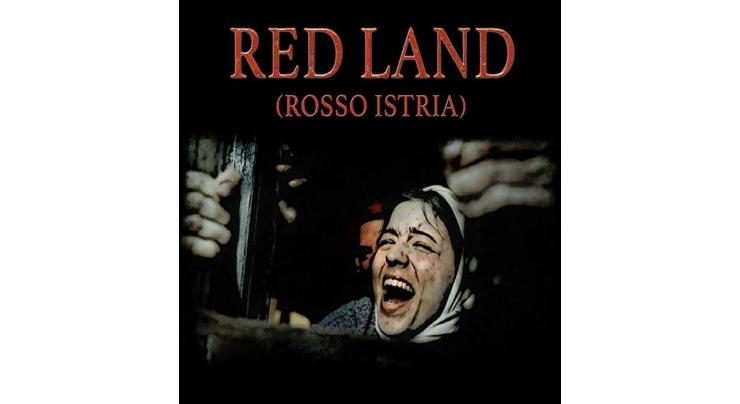
Italy Film Recalls Pain Of Forgotten WWII Massacres
Chand Sahkeel Published November 22, 2018 | 11:25 AM

A new film is shining an uncomfortable light on the fate of thousands of Italians killed in massacres on the Yugoslav frontier at the end of the Second World War.
Rome, (UrduPoint / Pakistan Point News - 22nd Nov, 2018 ) :A new film is shining an uncomfortable light on the fate of thousands of Italians killed in massacres on the Yugoslav frontier at the end of the Second World War.
"Red Land - Rosso Istria" recounts events that for decades were only commemorated by neofascists, showing that things were not as black and white as previously thought and provoking a wave of reactions on social media.
From 1943 to 1947, between 5,000 and 10,000 Italians were murdered in the region around Trieste, on today's border with Slovenia, as it was reconquered by Tito's Yugoslav partisans, with victims often thrown alive into deep sinkholes known as "foibe".
Another 250,000 people fled their homes.
What began as a "cleansing" of police and civil servants associated with the fascist regime by Yugoslav and Italian partisans later became the systematic murder of Italians.
Immediately after the war, Italy wanted to turn the page on its fascist history and the crimes committed by its forces in Yugoslavia as quickly as possible.
That meant that the massacres carried out by partisans were for years only commemorated by those nostalgic for Mussolini.
It was only in 2004 that the right-wing government of Prime Minister Silvio Berlusconi initiated a national day of remembrance for the massacres.
In 2005, Italy awarded a posthumous medal to Norma Cossetto, a 23-year-old student and daughter of a local fascist official, who was raped, tortured and murdered by Yugoslav and Italian partisans in October 1943.
Her story "is a metaphor" for the fate of all the other victims of the massacres, the film's producer Alessandro Centenaro told AFP.
The film recounts one of the partisans' murder methods: prisoners would be shot in the head on the edge of a "foiba", dragging others still living to whom they were tied to their deaths.
Related Topics
Recent Stories

Meter tampering, gas theft main reasons behind over billing in Balochistan: Tara ..

JUI-F chief expresses concerns about state of democracy in Pakistan

Four terrorists involved in suicide attack on Chinese in Besham arrested

SIC chief asks PTI leaders to resign from assemblies

Pakistan working tirelessly to eradicate polio from country: PM

IHC Justice Sattar dismisses pleas moved by FIA, PEMRA and PTA in audio leaks ca ..

Gillespie, Kirsten feature in 48th edition of PCB Podcast

Security forces kill four terrorists in Tank

Fake immoral video of Ducky Bhai's wife goes on viral on social media

Currency Rate In Pakistan - Dollar, Euro, Pound, Riyal Rates On 29 April 2024

Today Gold Rate in Pakistan 29 April 2024

Currency Rate In Pakistan - Dollar, Euro, Pound, Riyal Rates On 28 April 2024
More Stories From Showbiz
-

Nazish Jahangir denies viral screenshots, calls them fake
4 days ago -

Aiman Khan granted UAE Golden Visa
5 days ago -

Dutch model Donny Roelvink embraces Islam
6 days ago -

Superstar Muhammad Ali remembered on 93rd birth anniversary
10 days ago -

Hania enjoys vacations in London
10 days ago -

Death anniversary of famous singer,actress Khursheed Bano observed
11 days ago
-

Bushra Ansari ties knot with Iqbal Hussain
13 days ago -

Rahat Fateh Ali Khan embarks on Umrah journey
24 days ago -

Famous singer Shaukat Ali death anniversary Shaukat Ali observed
27 days ago -

Animal Actor Shafina Shah loses Ms.Pakistan title
27 days ago -

Mehwish Hayat unveils trailer for upcoming film 'Dagha Baaz Dil’
28 days ago -

Welcome to the Beyonce rodeo: new country album drops to praise
30 days ago











